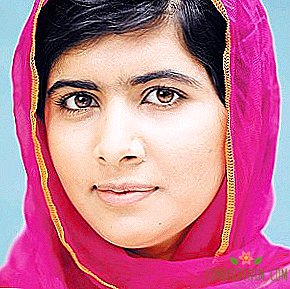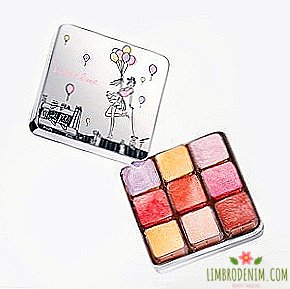Founder of STROGO vintage Marina Chuykina about favorite books
IN BACKGROUND "BOOK SHELF" we ask journalists, writers, scholars, curators, and other heroines about their literary preferences and publications, which occupy an important place in their bookcase. Today Marina Chuikina, founder of STROGO vintage, shares her stories about favorite books.

 I grew up in a classic Moscow family of medics: we read at home and at my grandmother constantly. It was a natural environment, which I, as a child, perceived as something that goes without saying. Mom says that my second word was “to read” (the first is for some reason “to stand”), and it is in imperative form. I remember my childhood sensations very well when my mother, who was sitting at the head of my bed, was reading books out loud with a special intonation peculiar only to her. Mom worked a lot, and this very moment of reading for the night was a very important, sacred moment of special, maximum closeness between us. I remember that each time I didn’t want my mother to turn off the light and go away, begging her to read some more, but she was tired, her voice was setting, and all I had to do was wait for the next evening.
I grew up in a classic Moscow family of medics: we read at home and at my grandmother constantly. It was a natural environment, which I, as a child, perceived as something that goes without saying. Mom says that my second word was “to read” (the first is for some reason “to stand”), and it is in imperative form. I remember my childhood sensations very well when my mother, who was sitting at the head of my bed, was reading books out loud with a special intonation peculiar only to her. Mom worked a lot, and this very moment of reading for the night was a very important, sacred moment of special, maximum closeness between us. I remember that each time I didn’t want my mother to turn off the light and go away, begging her to read some more, but she was tired, her voice was setting, and all I had to do was wait for the next evening.
During my school years, I spent a lot of time alone at home, alone with our home library. There was nothing in it: Dad worked in a book publishing house and brought home everything they released. The shelves were filled with fiction, detectives, adventure novels. Until the age of twelve, I read everything indiscriminately: I remember, I was terribly fond of fantasy, books about pirates and travels to other planets. At the same time, I also looked at my mom's shelves with medical literature, through which I sought out the killer signs of a particular disease, I was interested in books about psychology and tried Freud's tooth.
At different points in life, my literary guides were different people. Inside the family, of course, my grandmother: she introduced me at one time to Lev Kassil, Sholom Aleichem, Liliana Lungin. Every time I come to visit her, she greets me with a question that I am reading now - sometimes I have to blush when I draw the same book for a long time.
The thoughtful acquaintance with Chekhov became a turning point, perhaps a very acute experience - I remember exactly that it was the first summer when I did not go to the camp and stayed in Moscow. The Chekhov meeting took almost by chance, not for the first time, but this time something went differently. A subtle tragedy that was barely voiced in words, a quiet drama experienced almost behind the scenes opened up a new, so unfamiliar feeling of intoxicating delight of sadness. I began to look for authors who caused similar experiences in me.
I managed to systematize the reading process only in the journalism department: there I read very richly, practically without being distracted from literature, especially foreign, to other less interesting subjects. At some point I was very fascinated by female writers - so I fell in love with Gertrude Stein and spent long evenings painfully solving her English-language texts. After that, I generally became interested in experiments with the language, started reading Americans, became fascinated with beatniks, and eventually became interested in the culture of protest, a youth riot in the United States. There, the boundaries between the creative and private life of the writers dissolved, and everything fascinated me: a new language, rebellious ideas, a way of life, experiments on consciousness. This interest became the starting point for what I am doing now: my project was primarily inspired by the aesthetics of the youth counterculture.
Most often, I take books in libraries. Favorite - "Foreign woman", where I can almost always find the things I need. I like to realize that the book I hold in my hands over the past half century has been read by completely different people: some leave marks in the fields, others fold leaves, others put in bookmarks - what happened to these people? I imagine that some kind of mystical connection is being established between us, we become in some way associates. I like the yellowed from time to time, fragile sheets, frayed bindings. Most of all, of course, I like comments, nota bene, excerpts from other people's thoughts, which were left unintelligible in the fields - perhaps just for readers from the future like me.
Some time ago I ended up, thank God, which was very late for the crisis of transitional age: I was convinced that the book should bear only painful experience, thus bringing up a person in a person. Now, however, I enjoy very different things: subtle humor, stingy dialogues, lengthy descriptions, ironic and sad details of everyday life. I like to peel off layers, guess, join the game, conceived by the author, fall into the traps set by him and enjoy the beautiful language.

Vsevolod Garshin
Stories
For the first time I came across a collection of Garshin's stories on book collapses near Leninka. The seller literally lent me an unremarkable volume with a last name that does not tell me - I read it that night. Then she searched for everything that could be found about Garshin: his letters, the memories of friends — it turns out that even Mayakovsky indirectly mentions his death in Lilichka. How could this pass me by? I am very happy that I did not pass. Garshin for me is one of the great pillars: he always has everything very subtle, modest, without pathos; his texts are inseparable from the inevitable, but rather the positive pain that defines a person. It shows the ordinary at first glance, people broken, milled fate. High, strong in the most important, worthy - and yet doomed, as the author himself. Just look at his portrait to understand what kind of person he was - and could not stand it, he rushed into the flight of stairs.
Diaries of Gennady Shpalikov ("I lived as I lived")
With Shpalikov I had the following story. I worked as an assistant in the editorial office of one journal, when the editor-in-chief instructed me to find and contact Shpalikov’s heirs (previously known to me exclusively in the film “I walk in Moscow”) in order to obtain the rights to publish excerpts from his diaries. In the publishing house where I called in the search for contacts, they gave me the phone of his daughter, but they told me not to count too much on success - the story really turned out to be difficult and sad. It became terribly interesting for me, and I printed all the excerpts from Shpalikov’s diaries that I could find on the Internet. I remember reading them, choking with tears, in a cafe in Lavrushinsky. I am afraid to re-read these records again, but in some sense they became a part of me, at the same time they broke something and built something.
Edward Uspensky
"Down the magic river"
Favorite book of childhood, a humorous story about a modern city boy, Mita, who goes to visit his great-aunt, not suspecting that she is none other than the real Baba Yaga. Here are just the Assumption Baba Yaga is not a villain or an ogre, but a very good grandmother. For days, she drinks tea with her closest friend Kikimora Bolotnaya in a hut on chicken legs and looks at the TV instead of the saucer with an apple, which shows King Makar and his assistant Gavrila, and Vasilisa the Wise and all the beloved heroes of Russian fairy tales. For me, Ouspensky happened much earlier than the Strugatskys, and I absolutely adored him.
Giovanni Boccaccio
The Decameron
Boccaccio was standing on the top shelf of a grandmother's closet and in childhood scared me. At first, I timidly flipped through spicy pictures, closing from my parents in my grandmother’s bedroom, then I started reading from under the floor: I asked Grandma Decameron to go home, I was terribly embarrassed, so I read frantically on family holidays, most often on New Year's Eve. At that moment, when everyone beat the chimes, my cunning wives changed empty-headed husbands in every way, and roguish rogues seduced bored nuns — it was absolutely impossible to tear myself away.
Ingeborg Bachmann
Novels, "Malina"
With Ingeborg Bachman, it’s great to be sad. It always seemed to me that the only way to overcome sadness is to reach the last point in it, to break it - then the countdown will go first. For me, Bachmann is the best way to sink to the bottom: her books (my favorite ones are the latest) are imbued with a heightened sense of loneliness, a feeling of being lost, detached from one's homeland and the impossibility of understanding between people. But there is no sharp tear, no book pathos - and therefore her painful experience is not just read, but lived through.
Euripides
"Medea"
What amazes me in Euripides is its incredible relevance: two and a half thousand years ago, he wrote like yesterday. And Medea is a favorite character: a surprisingly strong female character, essentially the same Lilith - a woman who is not subject to drooling beloved, terrible in anger and even more terrible in disappointment. Very accurately, in my opinion, he filmed “Medea” von Trier: dark, creepy and beautiful.
Says Noteboom
"Lost heaven"
This book was recommended to me by my beloved friend of Berlin, and I, in turn, fell in love with all Noteboom things translated into Russian. This is the most atmospheric, slow prose that you want to savor, read slowly. "Paradise Lost" is a story very personally close to me: the heroes lost in their own fantasies go with the flow of the book, unable to really know each other. Everyone has their own imaginary paradise, lost and inaccessible in advance - and this is its charm. Everyday, feasible paradise is of no interest to anyone, and only an elusive paradise has value.
Sholem Aleichem
Collected Works
My grandmother made me love Sholom Aleichem - by the way, she also has a lot of similar stories. As a girl, she went to her relatives in the summer in the town of Klimovichi, from where she brought the most charming tales about tactless aunts Roses, noisy older and younger Tsipah, infinite uncles Isaacs and others, which I still can't really figure out. After Sholem Aleichem, I really fell in love with Rubin with a little more modern, but no less funny and touching stories.
Charles Perry
"The Haight-Ashbury: A History"
With this book and with several others devoted to the events of the late 60s in America, I had the following story. I just defended a diploma about the American counterculture of the 60s and, quite convinced that I ate a dog in this matter, I went to rest in Greece. In Athens, we had a connecting flight, and I already took a place in an old plane to the island of Skiathos, when the real hero of my diploma entered the salon: an elderly but very handsome and energetic hippie — in a leather jacket, cool, narrowed jeans, with ethnic bracelets and mane of silver hair. I was delighted, but I was ashamed to meet you - in three days I had the chance again.
It turned out that he was from New York, in 1968 he was 20 years old, and at that time he was cruising between New York and San Francisco, observing and living all that I wrote about in my diploma. Moreover, he turned out to be a journalist and collector, collecting, among other things, the rare samizdat of that time. Needless to say, he completely turned my understanding of what was happening then in America. For a whole week we rode around the island with him, and, like Scheherezad, he told me stories from his youth, and at parting he compiled a list of references for reading, which included this book by Charles Perry.
Terry jones
"Catching the Moment"
My visual bible. A couple of years ago I was lucky enough to take a short course at Saint Martins - on the first day of class I went to the library, and immediately to the "Fashion" department. This book was exactly what I needed: visual inspiration in its purest form. It was all that I was particularly interested in: the aesthetics of the 80-90s, the British rebellious youth, the spirit of protest, Susie Sue, Japanese, Berlin, mad colors, punk, and so on. Terry Jones - the man who invented i-D, a brilliant art director who worked with the best publications of his time - gathered his most outstanding works in this book and also told about how and why it all occurred to him. I took a picture of the half-book iPhone, but when I returned to Moscow, I realized that I absolutely needed it, and I ordered it on Amazon.




